Tomahawk’s Duane Denison: “There’s a political statement to be made in the whole concept of a band”
Even in an age where truly anything is possible, it’s pretty goddamn exciting to see Tomahawk back in action
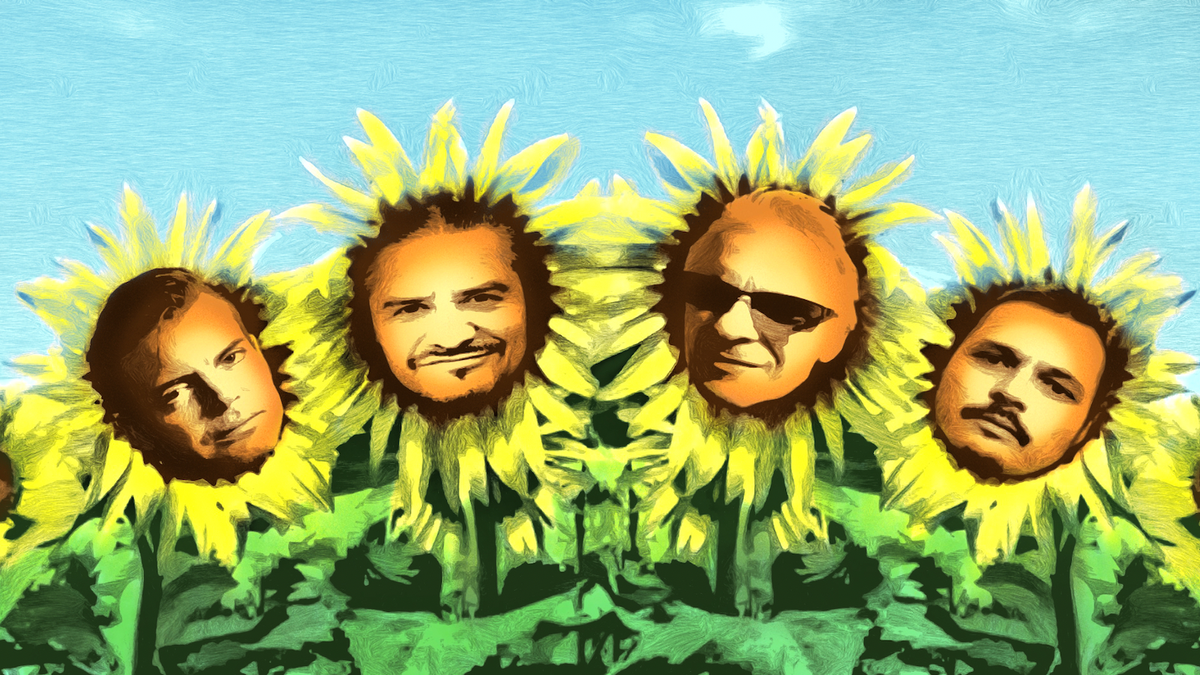
Note: this article is also featured in Australian Guitar #142, which is out now wherever great magazines are sold! Click here to read more about what’s in this jam-packed issue!
Few words wield as much diverse excitement and whimsy as ‘tomahawk’ – all at once it refers to one of the coolest types of axe ever crafted, the juiciest cut of bone-in steak you’ll ever sink your teeth into, a wonderful little town in rural Tasmania, and the best avant-garde prog-metal supergroup to ever walk this big blue marble. One of the many deliriously dynamic projects led by experimental rockaholic Mike Patton, the quartet are known for tight, ear-rattling riffs, unashamed genre-pending and a collective identity that never takes itself too seriously, but always knows when to dial in the attitude.
Eight brutally long years since their 2013 Oddfellows album, Tomahawk are back and more tempestuous than ever, delivering a cataclysmic cavalcade of powerful beats and masterful production in Tonic Immobility. Trust us when we say the 12-tracker is well worth the wait, too. But until all of us can get our grubby little paws on a copy, we’ll have to settle for the next best thing: a one-on-one sitdown with axeman Duane Denison (also of The Jesus Lizard), where we vibe on the meditative powers of the guitar, Tomahawk’s eight‑year hibernation (and secret reformation in 2017), and how rock music is, by default, a fierce political statement.
What brought you all back together after having this project in hibernation for so long?
To be honest, it’s been in the works for a couple of years now. I started doing demos for this album, like, four years ago. It did take a while for the stars to align – y’know, everyone’s got other projects, families, this and that… But even then, we started tracking the instruments together about two, three years ago. So we had a head start – we actually started well before everything got shut down. By the time the pandemic hit, we were far enough along that we just sent the material to Mike and he got to work in his home studio. He has a room full of equipment set up, so he was able to work on vocals and little bits of electronic things here and there. The pandemic did slow us down a little bit, but obviously not as much as it did for other bands.
Did having more time to live with and work on these songs help them evolve in a more dynamic way?
Yeah, that’s the thing – usually you’re in a rush to get it all done, you’ve got deadlines and you’re always looking back and going, “Oh, I wish we’d done this part instead,” or, “I wish we kept that part in.” So we had time to listen back and make those decisions in realtime. Even as it was being recorded, we would tweak as we went along. But y’know, having extra time didn’t really affect the arrangements or anything that much. Usually I write the bulk of music and Mike adds vocals, lyrics and a few other things, and then we tweak the arrangements in the demo stage – so by the time we start tracking, we know almost exactly what we want to do; we’ve already done most of the experimenting, and now we’re not going to waste any time. Because y’know, time is money in the studio. We always go in there with the intention to nail it.
In a press release, you call this album “an escape from the realities of the world”, and rock music in general “an alternate reality to everything else”. Can you expand on that a bit?
It can be – music has always been an escape, a release, a lifeline… It’s whatever you want it to be. And that doesn’t mean that I’m apolitical – that doesn’t mean that I’m hiding from the realities of life. Some people seem to have misinterpreted that, but no, I’ve been an active participant in American society for a long time; anyone that knows me or looks at my social media posts will know where I stand on things. But I feel like with music – and especially rock music – I want it to exist in its own space. You create your own little world, and then if it’s interesting or exciting or seductive enough, other people will want to meet you there.
For me, playing guitar is part meditation, but it’s also part workout – I have exercises that I have to do in order to maintain my ability to play. It’s part creative release, too. Part of it is just exercising your memory, as well as your physical technique. I work on things that have nothing to do with Tomahawk – for instance, I’ll work on memorising a Bach violin piece for the guitar because it’s a good mental and physical workout.
Get The Pick Newsletter
All the latest guitar news, interviews, lessons, reviews, deals and more, direct to your inbox!
I actually think there’s a political statement to be made in the whole concept of a band. When you’ve got different people working together, and you all sticking together over the years, that is, to me, a statement in itself, in the sense that you’re not all necessarily on the same page, but you’re working together for the greater good. You don’t have to love everything about someone to work with them or get along with them, or to try and achieve something good with them. I truly believe that.
You can be left-wing, you can be right-wing – not too right-wing, of course – and you can still work together and make good things happen. And you have to, or the planet is f***ed. We have to find a way to make it work. And that’s what that’s all about. And I mean, when I go to a concert or when I listen to an album, I don’t want to be lectured by anyone. I’m interested in hearing their views, and I’m always interested in hearing some information that I’m not familiar with, but the last thing I want is to be lectured by someone who, as soon as the show is over, hops into his limousine and goes off back to his five-star hotel.
I’ve always said that music is the one thing on Earth that can truly unify any group of people, regardless of where they sit on a political scale. To that end, most bands are successful examples of socialism in action.
Totally. On the one hand, being in a band is a business – you’re trying to keep your expenses down and make money, so there’s an element of capitalism. But in other ways, there are elements of socialism: you’re generating income, and you’re sharing it with each other. In The Jesus Lizard, everything was always equal – it didn’t matter who wrote what, y’know? I liked that. It didn’t matter who wrote what or who played what part, we were all in it together and we were all working for the common good, so everyone got a piece of the pie. It’s a microcosm of what I would like to see in society. But it’s not totally one or the other, is it? I’m not against someone becoming a millionaire from their music – just don’t be a prick about it, y’know? Share with your fellow person! Be good to others!

Ellie Robinson is an Australian writer, editor and dog enthusiast with a keen ear for pop-rock and a keen tongue for actual Pop Rocks. Her bylines include music rag staples like NME, BLUNT, Mixdown and, of course, Australian Guitar (where she also serves as Editor-at-Large), but also less expected fare like TV Soap and Snowboarding Australia. Her go-to guitar is a Fender Player Tele, which, controversially, she only picked up after she'd joined the team at Australian Guitar. Before then, Ellie was a keyboardist – thankfully, the AG crew helped her see the light…

“These guys started the band the same year I was born – they have a whole world of history together”: How Nicole Row went from a wild ride in Panic! at the Disco to laying down the low-end in Incubus – and rerecording their biggest album
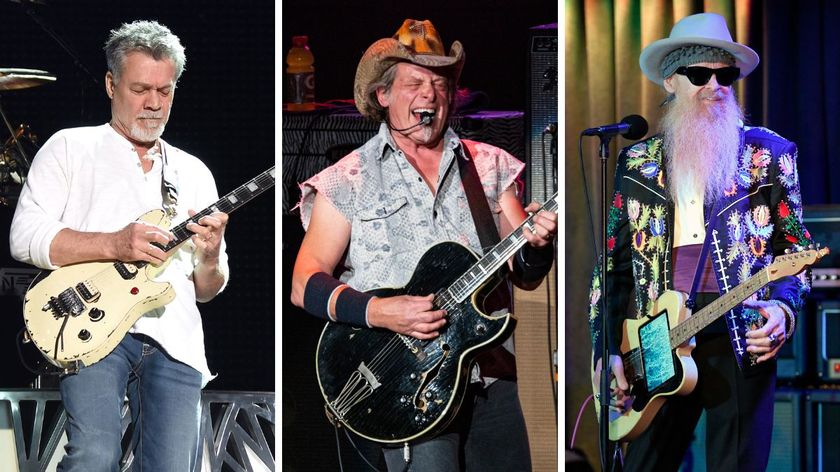
“Who doesn't want to hear the recording of Ted Nugent and Eddie Van Halen jamming?” Ted Nugent's colossal archive includes sessions with EVH, Billy Gibbons and the Mothers of Invention
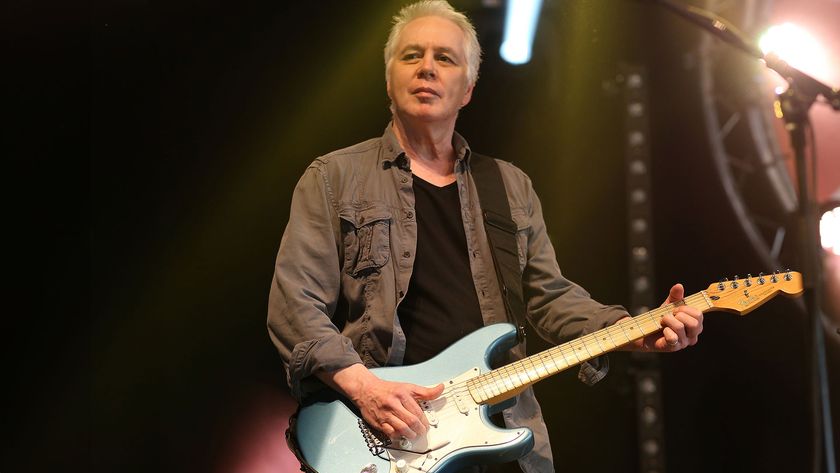
![Adrian Smith [left] and Richie Kotzen pose with an HSS S-style and Telecaster respectively.](https://cdn.mos.cms.futurecdn.net/DqivbKgc2aXLoykDT3h5mN-840-80.jpg)
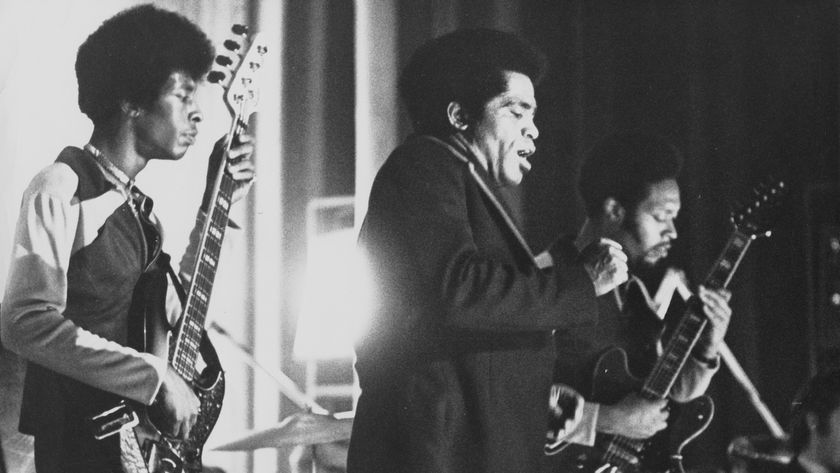
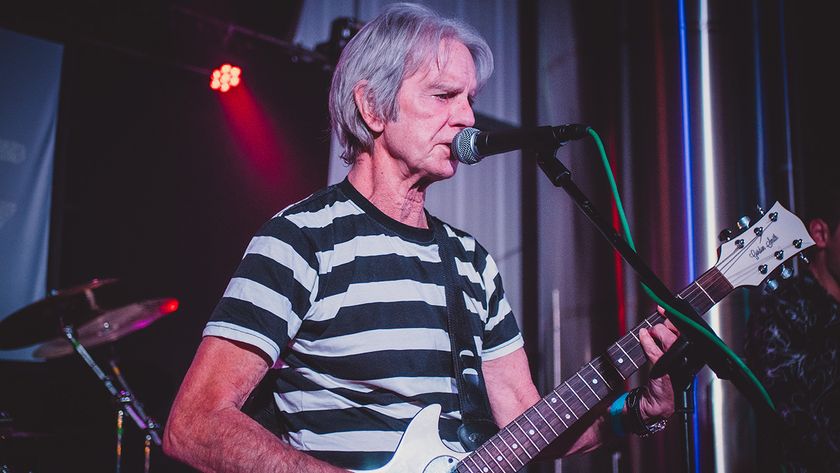
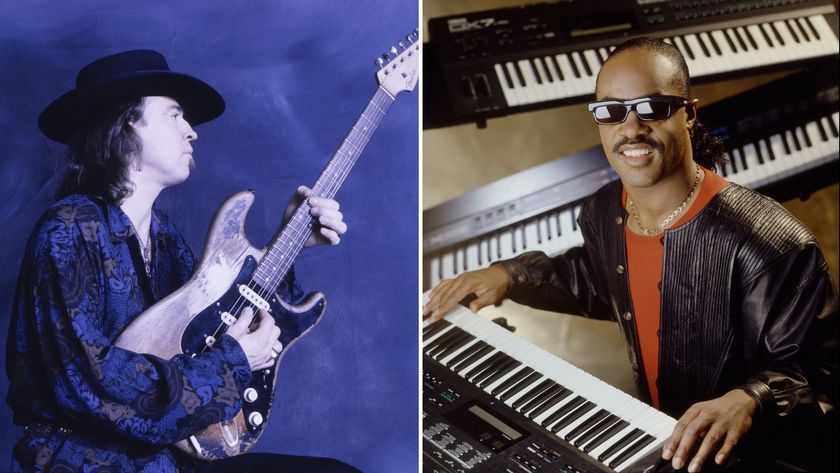
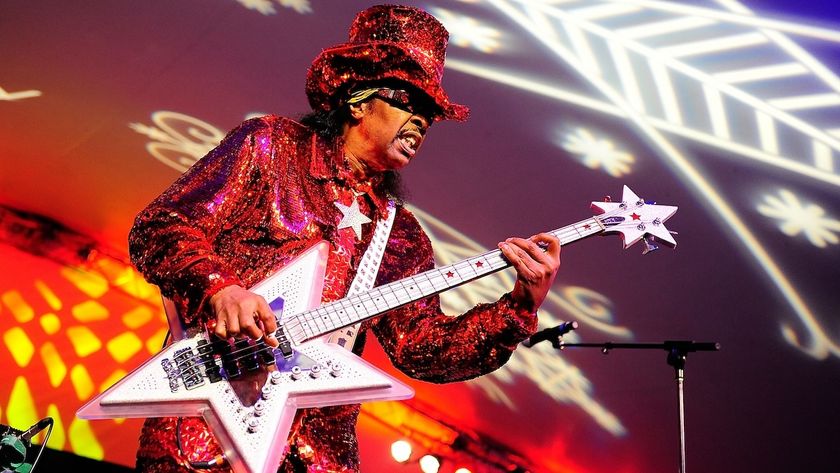
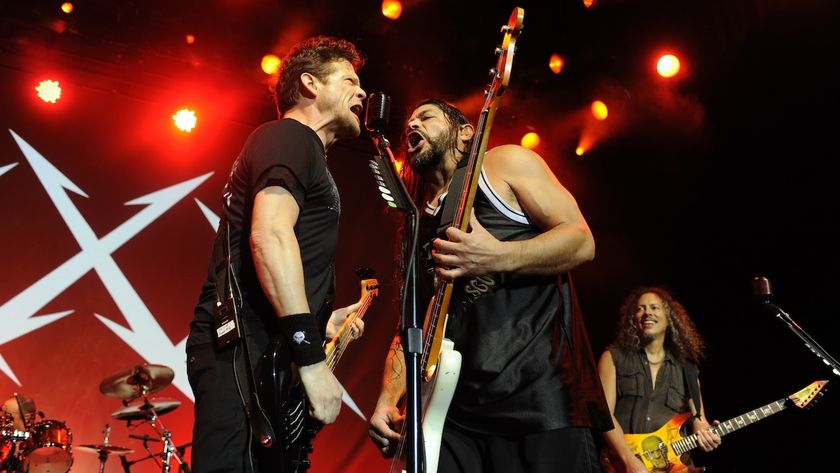
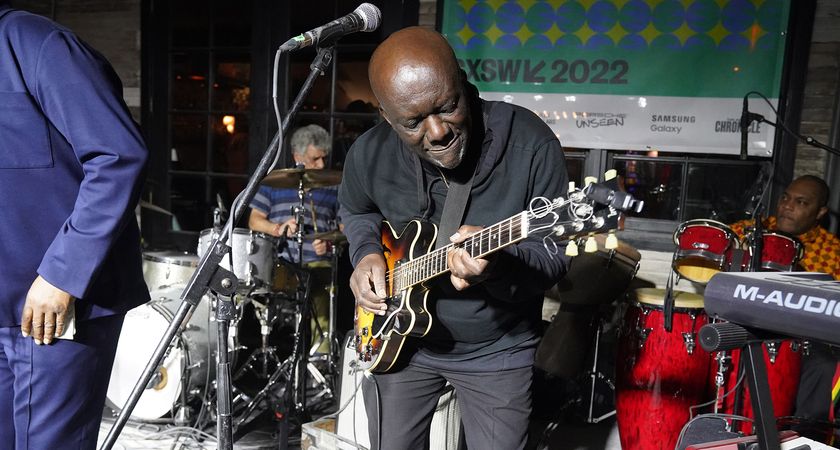
![[L-R] George Harrison, Aashish Khan and John Barham collaborate in the studio](https://cdn.mos.cms.futurecdn.net/VANJajEM56nLiJATg4P5Po-840-80.jpg)